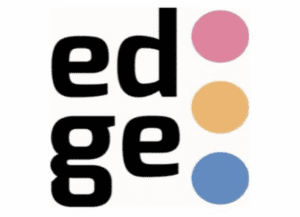

ONLINE COURSE – Introduction to Metabarcoding and Metagenomics Analysis (IMAM01) This course will be delivered live
7 October 2024 - 10 October 2024
£432.00 – £480.00
Event Date
Monday, October 7th, 2024
COURSE FORMAT
This is a ‘LIVE COURSE’ – the instructor will be delivering lectures and coaching attendees through the accompanying computer practical’s via video link, a good internet connection is essential.
TIME ZONE
TIME ZONE – GMT (Edinburgh Local Time) – however all sessions will be recorded and made available allowing attendees from different time zones to follow.
About This Course
Metabarcoding and metagenomics study genetic material recovered from environmental samples. Both methods provide a comprehensive view of microbial communities which are present in various ecosystems. The ability to identify organisms from traces of genetic material in environmental samples has reshaped the way we see life on earth. Especially for microorganisms, metagenomic techniques have granted us unprecedented insight into the microbiome of animals and the environment more broadly
Metabarcoding and metagenomics are both methods to study the composition of these complex communities. Where metabarcoding focusses on looking at a single or a combination of marker genes, metagenomics looks into everything within a community.
During this course we will look at the differences and similarities between these two methods. We explain how to process the data using both short and long reads data, we take a look at the pros and cons and some of the pitfalls. We will guide you through the different approaches to take when processing the data and walk you through using some of the tools which are considered to be golden standard in the field. You will have hands on experience processing real data.
By the end of the course, participants should:
- Understand the basic concepts behind metabarcoding and metagenomics
- Work with both short and long read data for both metabarcoding and metagenomics
- Be able to use Qiime2 and NanoClust for analysis of metabarcoding
- Know different methods (metaphlan, humann) for marker based taxonomic and functional annotation of metagenomics data
- Create and annotated metagenome assembled genomes (using megahit, checkm, gtdb-tk)
- Be able to annotated antibiotic resistance genes in metagenomics data
Intended Audiences
Academics and post-graduate students working on projects related to complex communities and applied researchers and analysts in public, private or third-sector organizations who need the reproducibility, speed and flexibility of a command-line language
Venue
Delivered Remotely
Course Details
Availability – 25
Duration – 4 days
Contact hours – Approx. 22 hours
ECT’s – Equal to 2 ECT’s
Language – English
Teaching Format
Intermediate-level lectures interspersed with hands-on mini practicals. Access to Linux VM and data sets for practicals will be provided by the instructors. Time will be available during the course for participants to ask questions regarding their own projects.
Assumed quantitative knowledge
Some familiarity of metagenomics will be helpful.
Assumed computer background
Good familiarity with Linux will be helpful.
Equipment and software requirements
COMING SOON…
PLEASE READ – CANCELLATION POLICY
Cancellations/refunds are accepted as long as the course materials have not been accessed,.
There is a 20% cancellation fee to cover administration and possible bank fess.
If you need to discuss cancelling please contact oliverhooker@prstatistics.com.
COURSE PROGRAMME
Day 1 Classes from 10:00 – 15:30
Metabarcoding
• Data QC and preprocessing of short reads metabarcoding
• Filtering, denoising and assiingment of taxonomy using Qiime2
• Align sequencing and build phylogenetic tree
• Calculate alpha and beta diversity
• Introduction into ANCOM-BC
• Long read 16S
Day 2 Classes from 10:00 – 15:30
Short read metagenomics
• Host removal using KneadData
• Taxonomic profiling using MetaPhlan
• Functional profiling using HumanN
• Antibiotic resistance gene screening
Day 3 Classes from 10:00 – 15:30
Short read metagenomics
• Metagenome assembly using megahit
• Contigs binning and generation of metagenome assembled genomes (MAGs)
• De-replication of MAGs
• Taxonomic classification of MAGs using GTDB-Tk
Day 4 Classes from 10:00 – 15:30
Long read metagenomics
• Long reads metagenomics using the DIAMOND-MEGAN pipeline
• Data QC and preprocessing of long reads
• Metagenome assembly using metaFlye
• Functional annotation using Prokka
